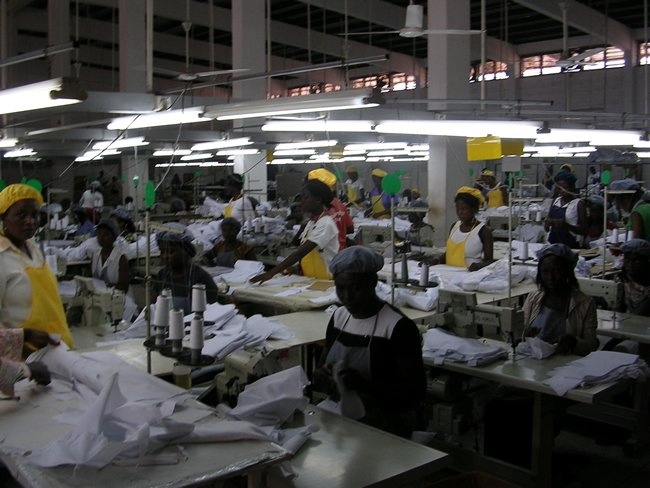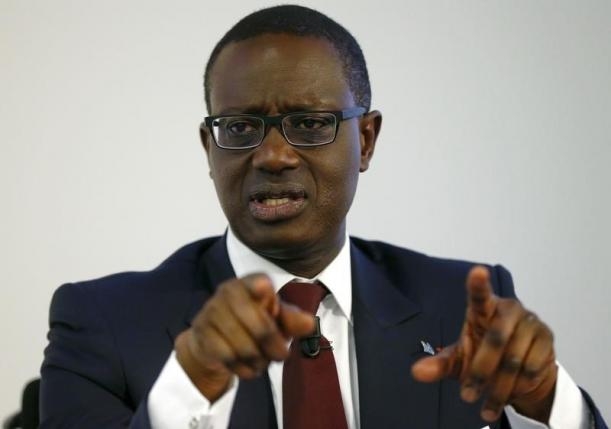
IMF satisfied with Ghana’s performance
The International Monetary Fund (IMF) has expressed satisfaction with Ghana’s performance on its programme with the fund, saying: “Implementation of the programme has so far been satisfactory, with all end-August 2015 performance criteria met.”
An IMF team, led by Mr Joel Toujas-Bernate, was in the country for two weeks for its second review of Ghana’s financial and economic programme under the Extended Credit Facility (ECF) programme which seeks to stabilise the economy and restore fiscal credibility.
Under the programme, Ghana has some bitter pills it must swallow in order to maintain tight fiscal discipline, without sacrificing growth. The fund is giving the country over $940 million to support its current account which is necessary for stabilising the local currency.
The IMF team also held discussions with authorities, including the President, Mr John Dramani Mahama; the Finance Minister, Mr Seth Terkper; the Governor of the Bank of Ghana, Dr Henry Kofi Wampah; senior officials of government and the donor community.
The discussions focused on the medium-term outlook and policies needed to restore debt sustainability, macroeconomic stability and a return to high growth and job creation, while protecting the poor.
Election 2016: IMF pegs Ghana’s fiscal deficit at 5.3%
The International Monetary Fund (IMF) has given Ghana thumbs up for working within the scope of its bailout plan after its second review.
A team from the International Monetary Fund (IMF), led by Joël Toujas-Bernaté, visited Accra from October 21–November 5, 2015, to conduct discussions on the second review of Ghana’s financial and economic programme supported by the IMF’s Extended Credit Facility (ECF).
The discussions focused on the implementation of the programme, the medium-term outlook and policies needed to restore debt sustainability, macroeconomic stability, and a return to high growth and job creation while protecting the poor.
After its review, the IMF said: “Looking ahead, given the high level of public debt and financing constraints, the planned fiscal adjustment under the program will be strengthened in 2016. The budget will also face additional spending needs from the (one-off) costs related to next year’s elections and a nominal wage bill increase now projected to be slightly higher than envisaged under the program, while earmarking of revenues for statutory funds continues to reduce budgetary flexibility.
“Recognizing these challenges, the authorities, after discussions with the mission, prepared a package of revenue and spending measures for the 2016 budget to bring the fiscal deficit down to 5.3 percent of GDP next year, instead of 5.8 percent envisaged in the program. Steps to contain losses in state owned enterprises will also be particularly important to prevent additional fiscal pressures.”
‘Y3NTUA!’ … Industry and Labour say to tariff hikes
Imminent hikes in utility tariffs have provoked a salvo of reactions from a cross-section of employers and their workforces, with both sides asking for improvements in service delivery before they pay more.
Both the Association of Ghana Industries (AGI) and Organsied Labour have issued statements saying any tariff hikes will worsen already precarious socio-economic conditions in the country.
At the presentation of third quarter results from its Business Climate survey on Tuesday, the AGI said businesses continue to reel under enormous pressure from exchange rate volatility, electricity shortages and high cost of credit, and so they cannot be further burdened with utility price hikes.
“Businesses are not ready for tariff increases,” AGI president, James Asare-Adjei, said. “The AGI believes it is about time consumers demanded value for money and efficiency in service delivery by the utility companies.”
In a letter addressed to the PURC, Organised Labour also said Ghanaians are already paying heavily for the “poor macro-economic performance and the technical and operational inefficiencies of the utilities,” and so should be spared the tariff hikes.
“As representatives of workers, we are worried about the ever-increasing utility tariffs which do not match the rate of increases in incomes,” said the letter which was signed by Dr. Yaw Baah, Acting Secretary General of the TUC.
Pensions Authority begins payment of Tier 2 pensions
The National Pensions Regulatory Authority is set to begin the payment of Tier 2 pensions to contributors.
This comes after months of agitation that ended up in court.
The Authority has transferred funds from the Temporary Pension Fund Account at the Bank of Ghana to the first batch of employers in the private sector.
The category of beneficiaries include all those who have registered under the mandatory Second Tier Occupational Pension Scheme and had successfully gone through the application, validation and due diligence process.
A statement said the amount transferred represents contributions made between January 2010 to December 2013 and hit the account of custodians of the beneficiaries schemes on Wednesday 4th November, 2015.
The Authority called for application for the transfer of funds in December 2014, but had to put the exercise on hold due to the amendment to the National Pension Act which reduced the age of exemption from participation in the Third Tier Pension Scheme from 55 years to 50 years.
The statement said since the call for application in 2014, the Authority has received over 100 applications.
Western Diamond Cement opens in Western Region
Western Diamond Cement Limited (WDCL) has launched its product in Takoradi under the brand name ‘Diamond Cement’ to meet requirements of the construction industry.
The company, which has the first vertical plant in Ghana, will produce higher grade 42.5rapid and 32.5 rapid respectively as well as clinker storage of 6,500 metric tonnes.
Mr. Buddarajo Roju, Manager of Quality Control at Western Diamond Cement Limited, explained that the company is under the Diamond Cement Group Limited located at Bokro in the Ahanta West district of the Western Region — and has branches at Aflao in the Volta Region and Buipe in the Northern Region.
He noted that Ghana is a vibrant economy with rapid growth in the entire West Africa, especially infrastructural development: “We at WDCL would like to join hands with you in this cause of national development.
“Our company will give direct employment opportunities for about 600 people and about 4,000 indirect individuals — again, WDCL will give direct employment opportunities to approximately 200 people and about 1,500 indirect individuals.
SADA to host 2016 Ghana International Trade Fair in Tamale
The Savannah Accelerated Development Authority (SADA) has concluded an arrangement with the Ghana Trade Fair Company Limited to host the 20th edition of Ghana International Trade Fair in Tamale.
This was the outcome of a series of meetings held between the two organisations in Accra and Tamale.
Addressing participants at the opening of a two-day Planning Committees Workshop in Tamale for the forthcoming 20th Ghana International Trade Fair scheduled to take place at the Tamale Sports Stadium from February 25 – March 7, 2016, the Chief Executive Officer of SADA, Mr. Charles Abugre expressed delight at progress of work.
The planning workshop was attended by participants, from Ministry of Trade and Industry, the Ghana Investment Promotion Centre, Ghana Police Service, Northern Regional Coordinating Council, the Centre for National Culture, Ghana Trade Fair Company and SADA.
The fair on the theme “Two Decades of International Trade Fairs in Ghana: Exploring Business Opportunities in the SADA Zone of Ghana”, seek to harness the vast investment potentials in the Savannah Ecological Zone.
Maiden international petroleum confab opens today
The Ghana Chamber of Bulk Oil Distributors (CBOD) will today(Friday, November 6, 2015) organise the maiden edition of the Ghana International Petroleum Conference (GhIPCON) to create a platform for industry education, policy construction, review, modification and momentum for growth and development in the petroleum industry.
According to the Chief Executive Officer of the CBOD, Mr Senyo Hosi, the event, which would be held annually, will bring together the major players in Ghana’s mid-and downstream petroleum sectors.
“We hope the event will bring to the fore issues affecting the petroleum mid- and downstream industries and also find ways of strengthening these sectors for the growth of the economy,” Mr Hosi added.
The Vice President, Paa Kwesi Amissah-Arthur, will open the event, which is expected to bring together 150 participants and experts from across the country and other parts of the world.
Running on the theme: “The Changing Phase of Petroleum Sector – Repositioning Industry,” the event has an objective to deepen the constructive role of the mid- and downstream petroleum sectors in the economy.
200,000 units required to fix Ghana’s housing deficit
The Chief Executive Officer of Danywise Estate and Construction, Mr Frank Aboagye Danyansah has called for active private sector participation in the affordable housing project to help bridge the widening housing deficits facing the country.
He said with the country’s housing shortfall is projected at 1.7 million units, and expected to soar to two million by 2018, implying that government would have to build 190,000 to 200,000 units each year for the next 10 years to bridge the gap.
Speaking to the Ghana News Agency on Wednesday, Mr Danyansah warned that the country risks a housing crisis in the next three years if policymakers fail to clearly outline measures towards averting the situation.
There is inevitable need for managers of the economy to start from the urban centres he said, where the demand for housing is fast outstripping its supply at a rate of 17.5 per cent annually.
“If government does not support the private sector, it will be difficult for us to put up affordable structures,” he said.
AGI sets up industrial fund to support SMEs
The Association of Ghana Industries (AGI) has initiated what an Industrial Development Fund to support members to overcome funding challenges.
Officials say the fund aims at addressing limited opportunity in the financial market for businesses, especially small and medium enterprises that continues to stifle business growth.
According to the AGI, Businesses have had to bear the brunt of short-term loans with high interest rates, considered a disincentive to growth of the sector as a critical part of the national economy.
“One of the biggest challenges facing industry and SME is affordable credit, and even if the credit is affordable, the cost is so deterring if you have a situation where banks are lending to SME’s at 35 per cent plus, it’s a challenge,” said James Asare Agyei, President of AGI.
Source: BFT, Joy Online, Graphic



